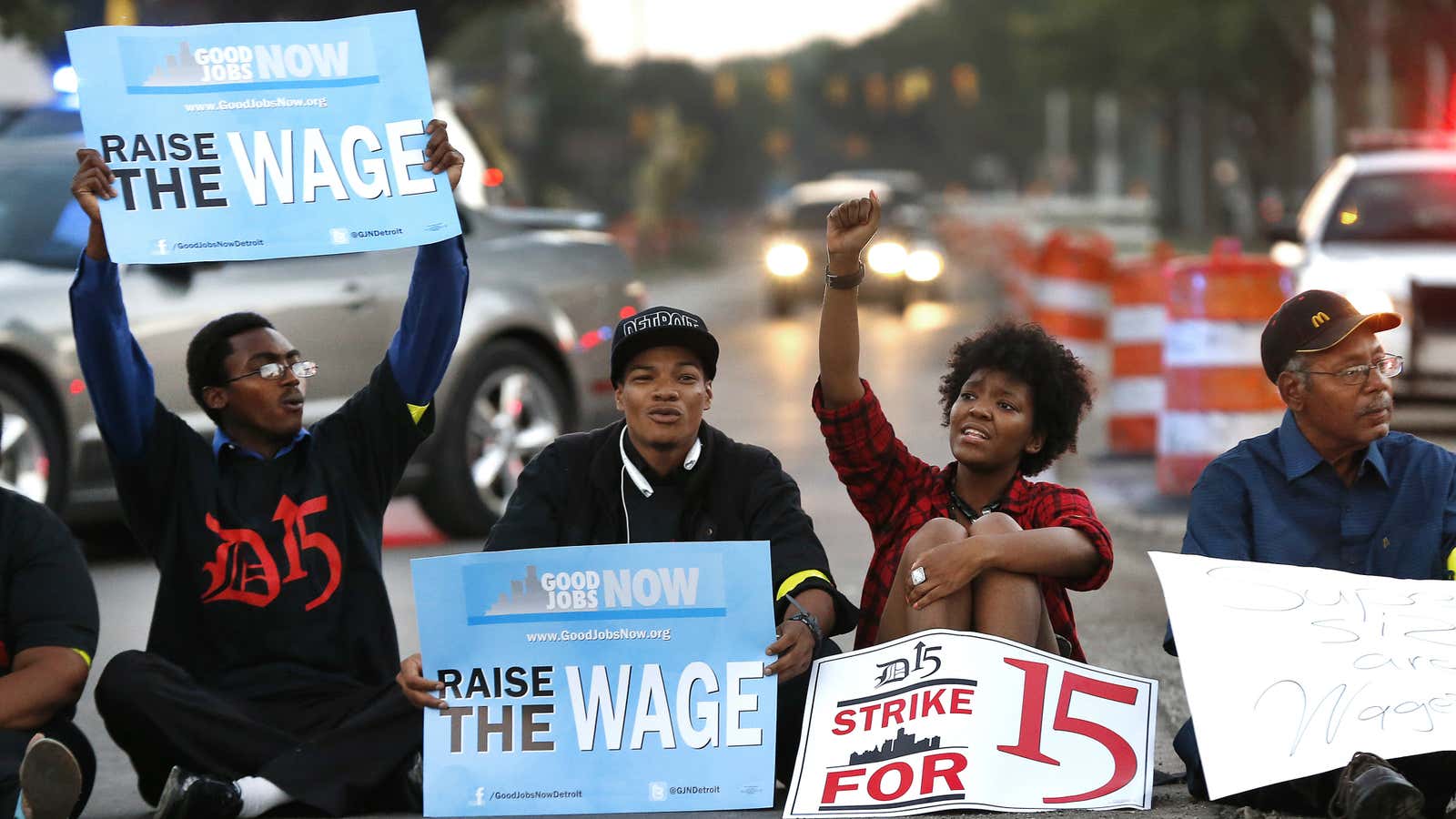Tyrel Oates, an Oregon man who works for Wells Fargo, rocketed to Internet renown last week after he wrote to the company’s CEO to ask for a raise and copied hundreds of thousands of co-workers on the email.
With its suggestion that the boss pay everyone at the fourth-largest US bank an additional $10,000 a year, Oates’ email quickly became a symbol of the 99% and its mounting frustrations with income inequality in America. (Oates reportedly makes $15 an hour processing paperwork for the bank, while Wells CEO John Stumpf got paid $19.3 million last year in salary and bonuses.)
Less talked about was the postscript on the email, addressing not the boss but Oates’ co-workers:
Though Wells Fargo does not allow the formation of unions, this does not mean we cannot stand united. Each and every one of us plays an integral part in the success of this company. It is time that we ask, no it is time that we demand to be rightfully compensated for the hard work that we accomplish, and for the great part that we all have played in the success of this company.
What’s striking about Oates’ entreaty—apart from its chutzpah—is that he presumes collective bargaining is an impossibility. As it happens, neither Wells Fargo nor any US company can prevent employees from exercising their right to bargain collectively.
The National Labor Relations Act gives all US workers the right to form or join a union, or otherwise band together to negotiate wages, hours, and working conditions. Federal law also protects all forms of so-called concerted activity, which includes bringing a group complaint to management’s attention.
“The NLRA and the right of employees in the private sector to organize for collective bargaining and to advance their mutual interest is still the law of the United States, even though there are a lot of people who would say that it should not be,” Fred Kotler, a research associate with Cornell University’s School of Industrial and Labor Relations, tells Quartz.
In the private sector, the percentage of workers who belong to a union has plummeted to 6.7% in 2013 from 16.8% three decades earlier, according to Drew DeSilver of the Pew Research Center, citing data from the US Bureau of Labor Statistics.
“The reasons for that decline are many and heatedly debated—from the impact of globalization on U.S. manufacturing to intense hostility from businesses to unions’ relative lack of success in organizing service- and information-industry workers,” DeSilver writes.
Though there are some union-owned banks, last year 1.5% of workers in the financial industry were represented by a union. That puts Oates and his colleagues just ahead of farmworkers and a notch behind laborers in the fast-food industry as the workers least likely to have union representation.
“The financial industry has always been tough for collective bargaining, but that doesn’t mean it’s impossible,” Kotler says.
